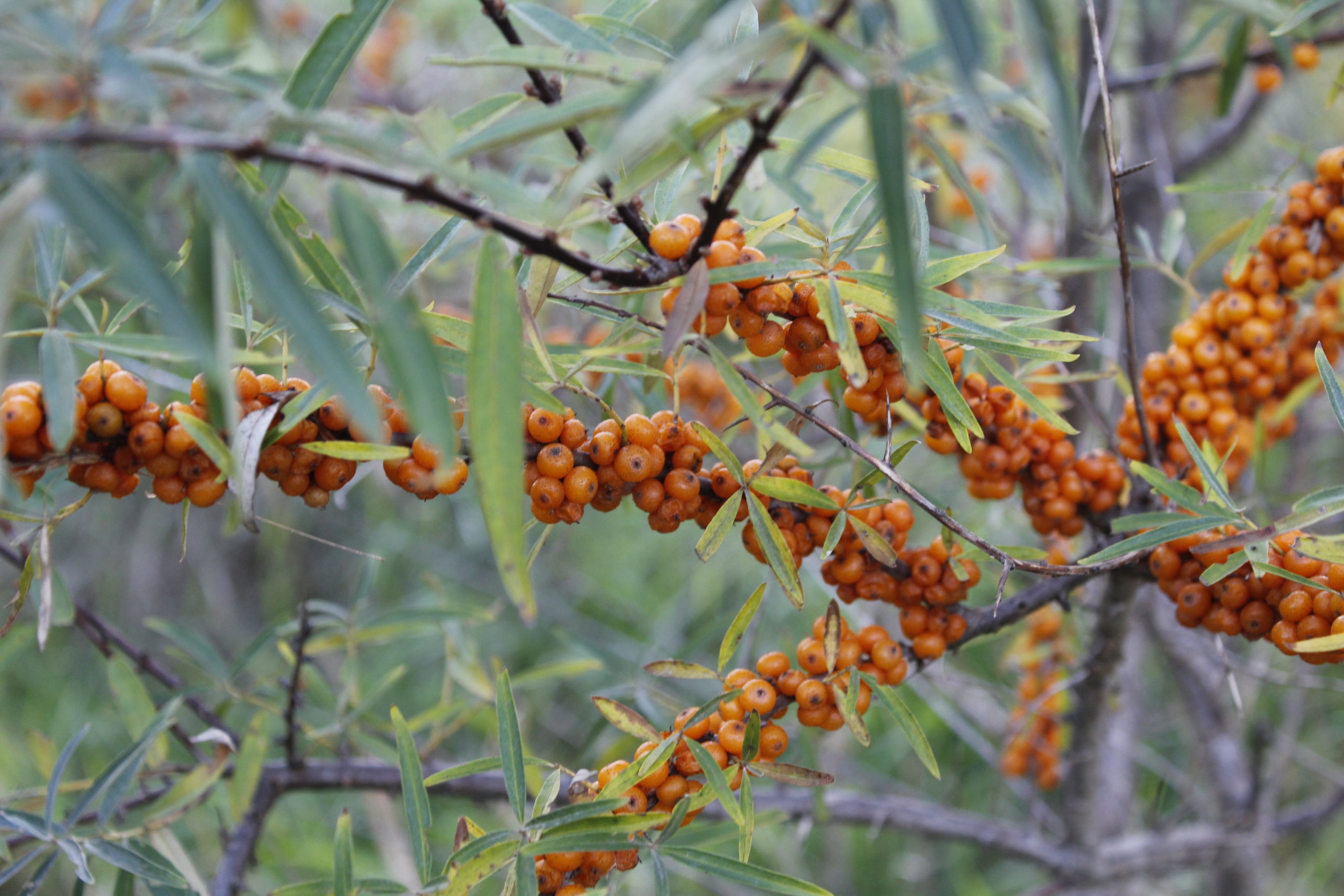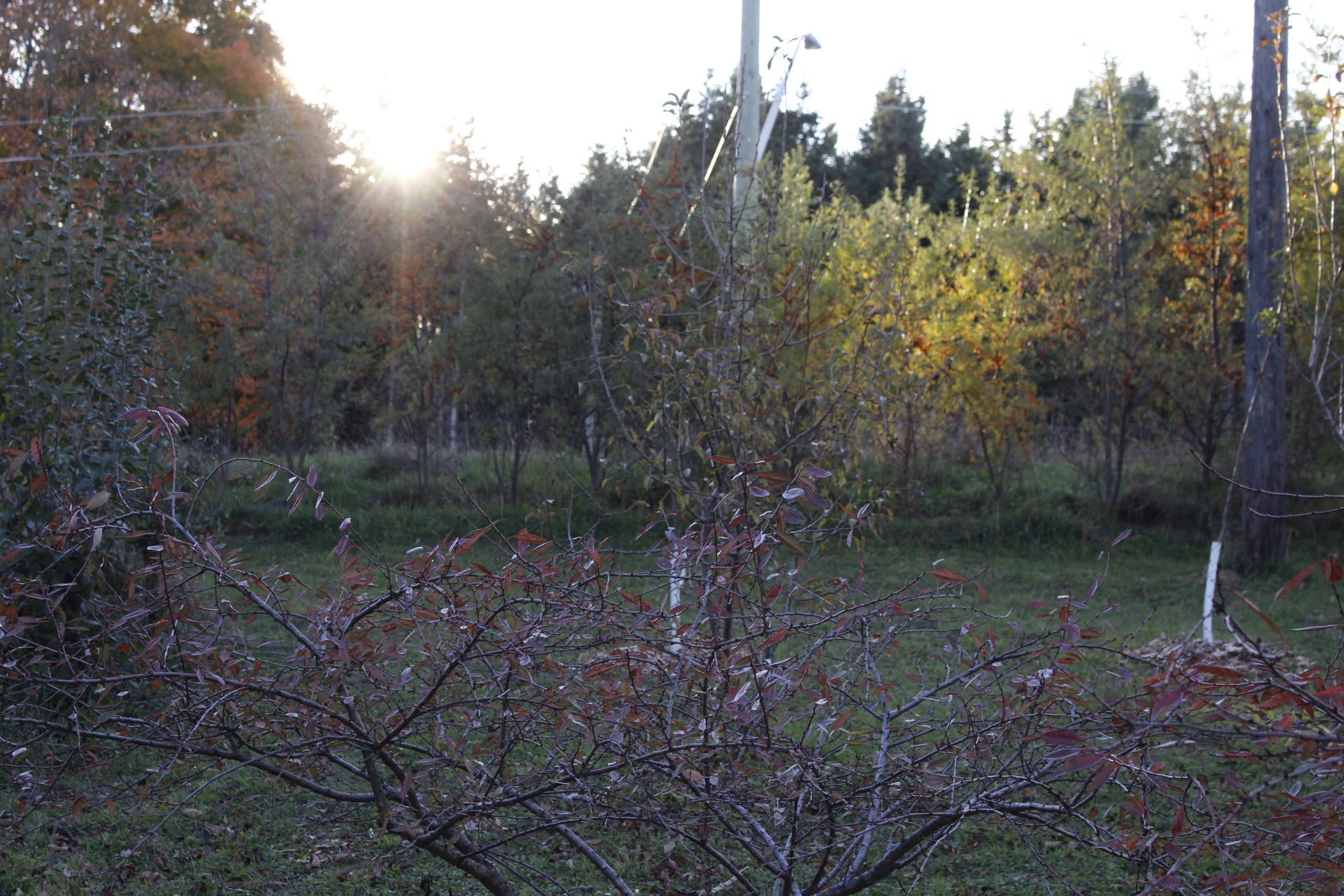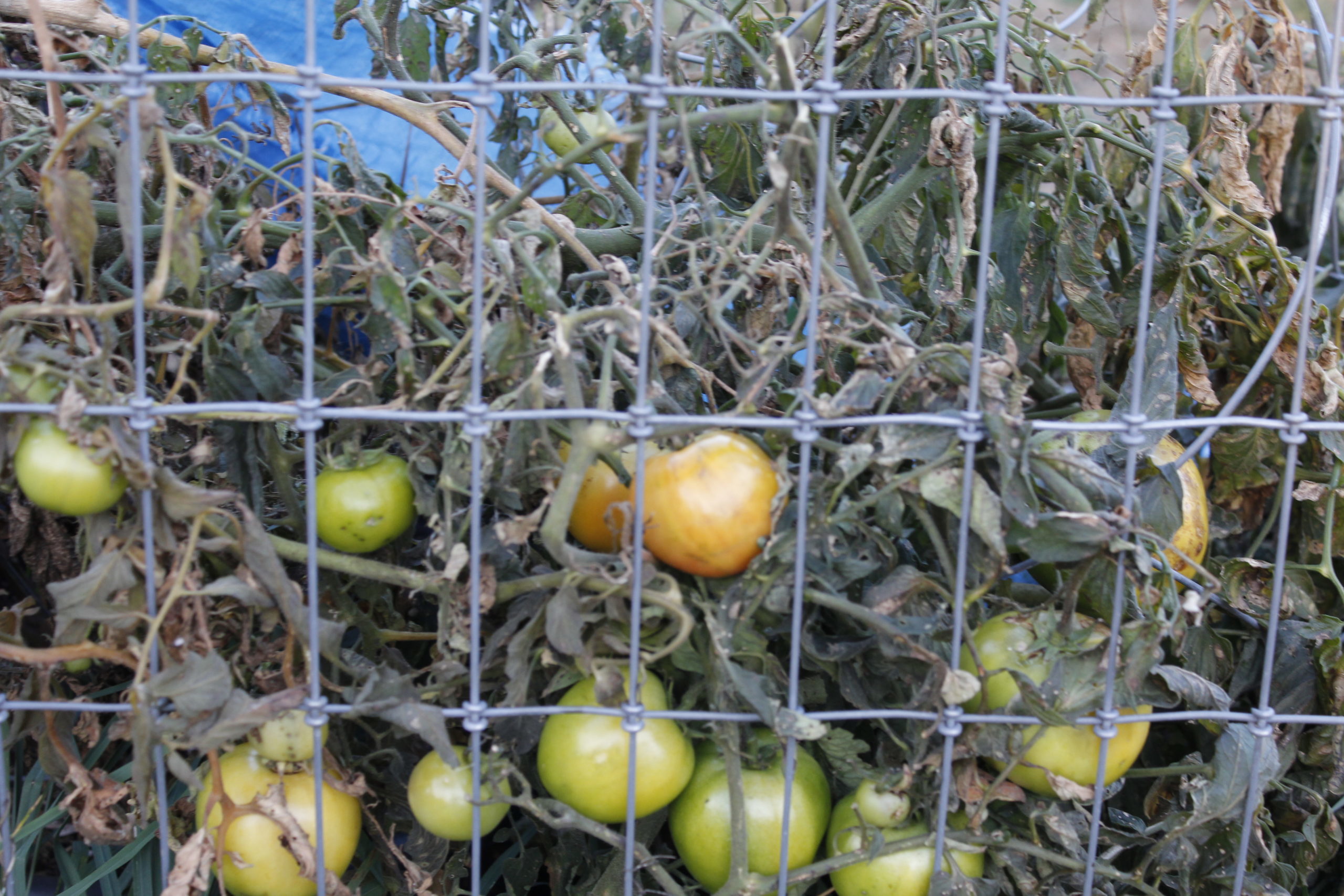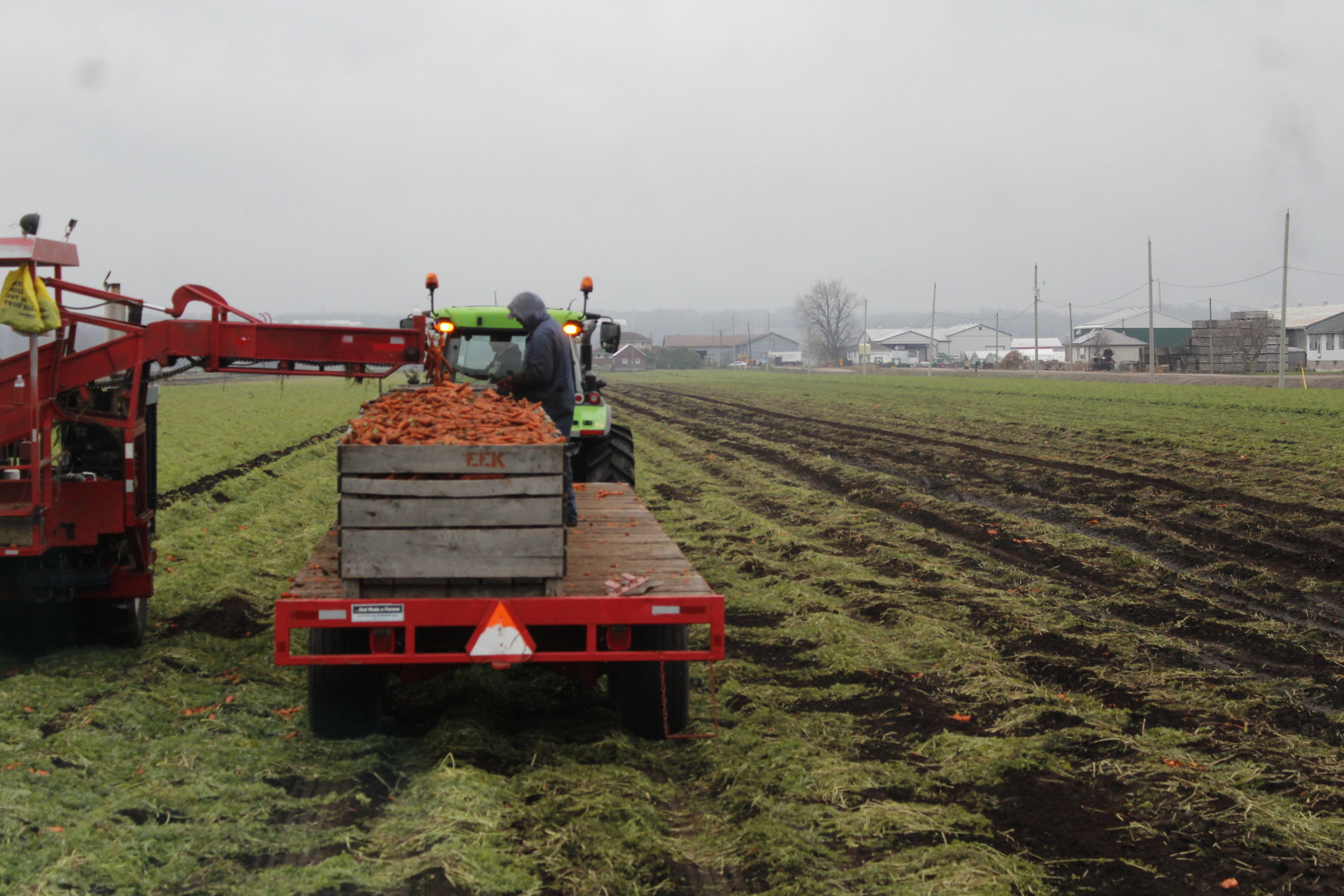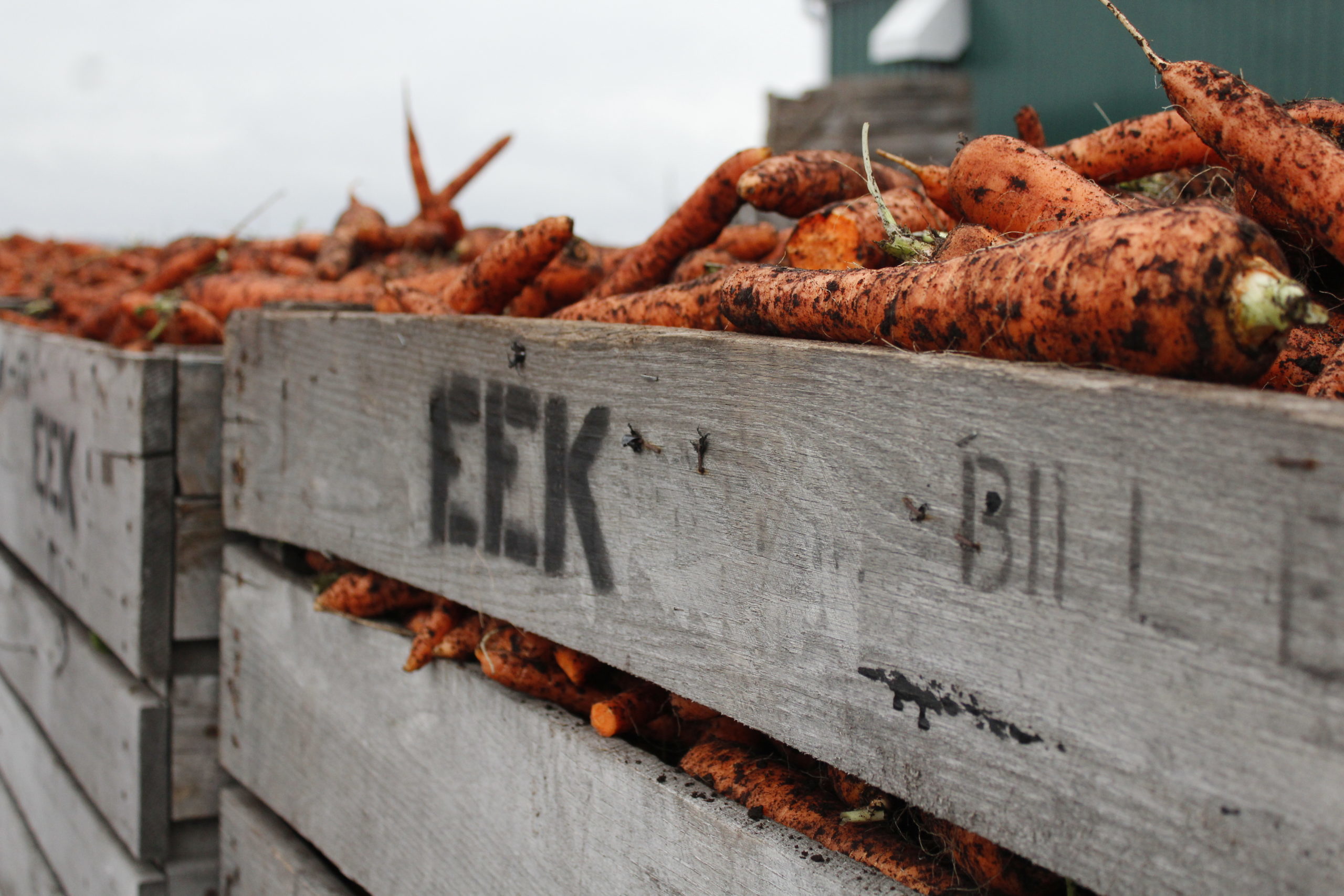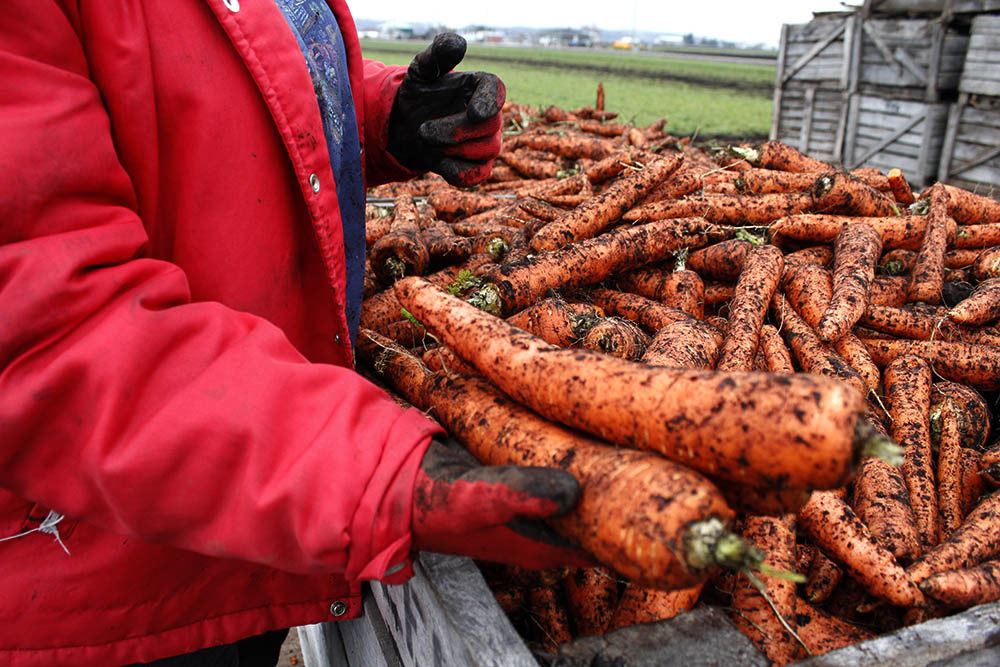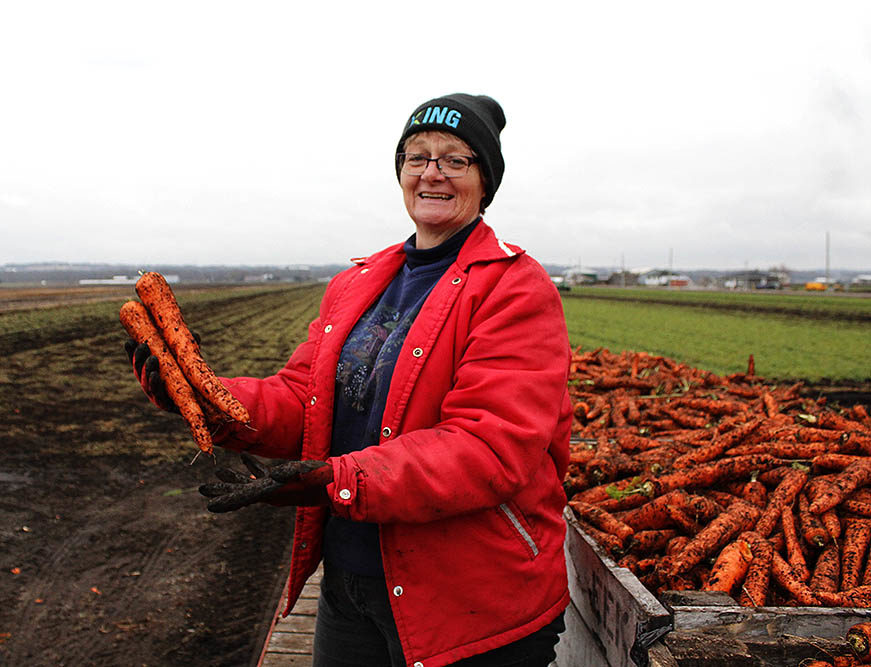IN THE FIRST YEAR, Shearman planted 40 Asian pears while the weather was minus 30. She lost 37 of those trees. “When the trees become established, they can resist that, but when they are young it is a disaster,” she says. This process takes up to seven years to fully establish. That was in 2012-2013. This past summer, Shearman also faced a delayed spring with cold and wet temperatures for a long time. “So, what happened is that my crops are all planted according to a rotation of harvest time. So, I have fruit spread out over the season.” This led to it all ripening at the same time. Currently, Shearman grows rhubarb and asparagus which she harvests in May and June, haskap berries in July, and some groups of trees that ripen every week until the middle of October. Shearman also grows potatoes and tomatoes for herself and garlic for sale which she calls “a good crop.” She also has black currants, red currants, gooseberries, black raspberries, cherry chums and grapes beginning in August, September, and October, with European and Asian pears and apples to follow. “A lot of stuff that I grow, I grow because of its nutrient density. It has specific health benefits,” she says. Looking after so many crops as well as animals can be challenging for Shearman, and cause decision fatigue. But, she tends to stay calm.
Although Shearman has one helper working for her part-time, Eek says that she and her husband hire workers from the Seasonal Agricultural Worker Program which they have been a part of since 1998. This labour program runs through foreign agricultural resource management services, working with the federal government and source countries like Trinidad. The Eeks’ grow onions and carrots which they split 50/50, she says. Carrots are stored until Eek calls a packing plant in town or one locally and decides on a price. Then they sell to chain stores like Metro, Loblaws, Food Basics and FreshCo. The money is all about supply and demand, says Eek. “I mean, when people go on about the costs of food going up because of carbon, I have to shake my head because, newsflash, price in food fluctuates up and down all the time,” she says. This is why Eek is an advocate for protecting farmland. She says she suffered a catastrophe in 2014, which was a fabulous year for growing onions. Everybody had great crops and the weather was great that year. But, with Europe setting up an embargo with Russia -banning the import of certain agricultural products, in Eek’s case the onions-she lost a quarter of one million dollars. Europe having a good growing season, and with one of their market partners out of the picture, tapped into the North American market, she says. With Europe pushing their onions over to the US, and them pushing it to Canada, Eek was left with overproduction of her onions and the inability to give them away.
